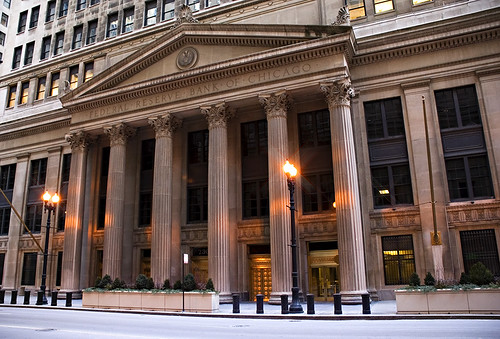There’s been a lot of talk in the news about a new economic stimulus package. Some are talking about a new one being approved this year while others speculate that it won’t happen until President-Elect Obama takes office. There’s been talk that a new economic stimulus package would be more infrastructure and not checks as the last package was. And there definitely has been a lot of talk of whether we even need a new economic stimulus package; questioning if it even makes a difference. Here’s what I say:
Never mind a new economic stimulus package – Save yourself!
Don’t count on the government to come through with legislation to help you make ends meet. That attitude will never get you ahead. You need to take matters into your own hands. If you are in a bad financial situation you need take control and ownership of the problem and fix it yourself.
Here are 12 ways you can take matters in your own hands and save yourself:
- Get your finances in order. If you haven’t done so get all of your monthly bills and expenses together and figure out what you are really spending. Put together a realistic budget that you will follow.
- Make sure you excel at your job. Unemployment is the highest it’s been in quite a while and I’m sure there will be many more layoffs to come. Don’t be the robot at work that does just enough to get by. Get yourself interested and make yourself valuable to your company. Don’t just get your job done – get it done well! If layoffs are coming you may be able to save yourself from the chopping block. Hey, maybe you could even get a promotion?
- Build networking relationships with friends and co-workers. Sometimes, as unfair as it seems, it’s not what you know but who you know. Keep up with co-workers when they move to other jobs. They can be your foot in the door if you leave your current job. Stay in contact with friends as well. Even if they don’t work in your industry they could prove to be a valuable contact. Network!
- Pay your bills on time. Lenders are getting shy about giving out their money these days. If you pay late you may find your interest skyrocketing. Universal default allows one credit company to raise your interest rate if you’re late on a different company’s card. A late payment can make all of your credit cards have high rates. If you aren’t paying off your balances every month you can find yourself sinking faster into debt.
- Put money away for emergency savings. Really you don’t know what the future holds and as the saying goes: “when it rains it pours!” What happens if you find yourself out of a job? Then the car breaks? Then you need a doctor’s appointment? Hopefully you don’t need your savings but put yourself in good shape by having savings in place.
- Make sure your credit report is clean. Errors on your credit report can be costing you in higher interest rates on your credit cards and loans. Make sure your credit report is accurate.
- Check you credit score. Your credit score is like your code of honor among credit agencies. A low score means higher interest rates and could also mean you won’t get a needed loan or credit. Credit scores are also used in housing and in job hunting. Get that score up!
- Cut costs. Remember that emergency savings? A way to help build that up is to cut costs. Cut a few corners here and there and you can find yourself with significant savings!
- Analyze your tax withholding. Are you paying too much? Pay what you need to and no more. Many like to get a big tax refund but you’re better off having that money in each of your paychecks instead. You don’t earn any interest when the government is holding your money! Adjust your tax withholding so you maximize your paycheck.
- Re-evaluate your holiday spending. The holiday spending frenzy is starting. Don’t get caught up in the current! You don’t need to spend exorbitant amounts on every person you know this holiday season (here’s a challenge: see if you can keep a $100 holiday). What really the point in spending so much if it puts you in a bad financial situation? Budget what you can spend on gifts and don’t go over. Make sure your budget is within reason of your financial situation (don’t spend more than you have!).
- Go to school. Yes, school is an expense. But taking some extra courses or pursuing/finishing up a degree can help make yourself more marketable to employers. This can be as simple as taking an advanced Excel course to working on a higher degree.
- Work on building alternate sources of income. Try your hand at blogging. Work on developing a hobby that could earn money such as photography. Other streams of income are a good thing, especially when money is tight. And you never know, what you start could develop into something bigger.
It always sounds nice when the government offers to give us money back but we have to remember there’s a price to this. It could mean less services somewhere else or more taxes down the line. Remember the money has to come from somewhere!
Don’t hope the government will do something to ease your situation. Get a hold of your finances and take care of it yourself!


